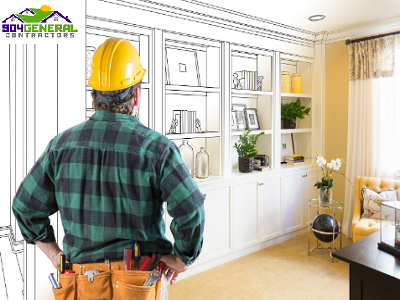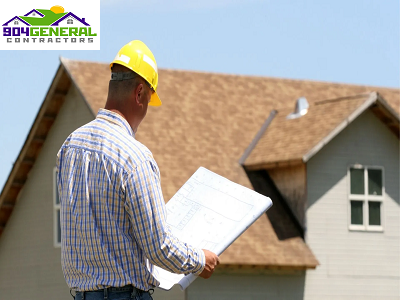In a world increasingly conscious of its environmental footprint, every industry is undergoing a profound transformation towards sustainability. Among these shifts, the construction sector stands out as a significant contributor to environmental degradation. However, amidst concerns over carbon emissions, deforestation, and waste generation, a new trend is emerging – the rise of eco-friendly contractor services. From green building materials to energy-efficient designs, eco-conscious contractors are leading the charge towards a more sustainable future in construction. This rising trend is not only driven by regulatory requirements and consumer demand but also by a genuine commitment to preserving our planet for future generations
Building Green: How Eco-Friendly Contractors are Transforming Construction
In an era defined by growing environmental consciousness, the construction industry is undergoing a profound transformation. Eco-friendly contractors are at the forefront of this shift, pioneering innovative practices that prioritize sustainability, reduce carbon footprints, and minimize environmental impact. From utilizing renewable materials to implementing energy-efficient designs, these contractors are reshaping the way buildings are constructed, paving the way for a greener future. Let’s delve into the world of eco-friendly contractor services and explore how they are revolutionizing construction practices.

Sustainable Materials and Methods
Eco-friendly contractors are redefining construction by embracing sustainable materials and methods. From reclaimed wood and recycled concrete to low-emission adhesives and eco-friendly insulation, these contractors prioritize materials with minimal environmental impact. Additionally, they employ techniques such as modular construction and prefabrication to reduce waste and streamline the building process.
Energy-Efficient Designs
Energy efficiency is a cornerstone of eco-friendly construction. Contractors incorporate energy-efficient designs that optimize natural light, maximize insulation, and utilize renewable energy sources such as solar panels and geothermal heating. By minimizing energy consumption and reliance on fossil fuels, these designs not only reduce carbon emissions but also lower long-term operating costs for building owners.
Waste Reduction and Recycling
Eco-friendly contractors are committed to minimizing waste and promoting recycling throughout the construction process. They implement strategies to reduce construction waste, such as efficient packaging, material reuse, and onsite recycling programs. By diverting waste from landfills and embracing circular economy principles, these contractors contribute to a more sustainable construction industry.
Green Building Certifications
Many eco-friendly contractors pursue green building certifications such as LEED (Leadership in Energy and Environmental Design) to demonstrate their commitment to sustainability. These certifications recognize buildings that meet stringent criteria for energy efficiency, water conservation, indoor air quality, and sustainable site development. By achieving certification, contractors not only differentiate themselves in the market but also provide assurance to clients seeking environmentally responsible construction.
Community Engagement and Education
Eco-friendly contractors prioritize community engagement and education to promote sustainable construction practices. They collaborate with local stakeholders, host workshops, and participate in outreach programs to raise awareness about the benefits of eco-friendly building. By fostering a culture of sustainability within communities, these contractors inspire positive change and drive demand for environmentally responsible construction.
Eco-Friendly Construction: The Key to a Greener Future
As the world faces unprecedented environmental challenges, the construction industry stands at a crossroads. Eco-friendly construction has emerged as a beacon of hope, offering a pathway to a greener, more sustainable future. By prioritizing environmentally responsible practices, materials, and designs, eco-friendly construction not only reduces carbon footprints but also fosters healthier communities and preserves natural resources. Join us as we delve into the transformative power of eco-friendly construction and its pivotal role in shaping a greener tomorrow.

Sustainable Materials and Technologies
At the heart of eco-friendly construction lies a commitment to sustainable materials and technologies. From recycled steel and bamboo to low-emission concrete and innovative insulation, eco-friendly contractors leverage cutting-edge materials that minimize environmental impact. These materials are sourced responsibly, often from renewable or recycled sources, reducing reliance on finite resources and mitigating pollution throughout the supply chain.
Energy Efficiency and Renewable Energy Integration
Eco-friendly construction places a strong emphasis on energy efficiency and renewable energy integration. Through passive design strategies, energy-efficient appliances, and the incorporation of renewable energy sources such as solar panels and wind turbines, eco-friendly buildings minimize energy consumption and reliance on fossil fuels. By harnessing the power of renewable energy, these buildings not only reduce greenhouse gas emissions but also lower utility costs for occupants.
Water Conservation and Management
Water scarcity is a pressing global issue, making water conservation a priority in eco-friendly construction. Contractors implement water-saving fixtures, rainwater harvesting systems, and drought-resistant landscaping to minimize water usage and promote efficient water management. By reducing water consumption and protecting water quality, eco-friendly construction contributes to the conservation of this vital resource for future generations.
Waste Reduction and Circular Economy Principles
Eco-friendly construction embraces waste reduction and circular economy principles to minimize environmental impact. Contractors prioritize waste diversion strategies, such as material recycling, upcycling, and deconstruction, to divert construction waste from landfills. By adopting a circular approach to resource management, eco-friendly construction aims to create a closed-loop system where materials are reused, repurposed, or recycled, reducing the need for virgin resources and minimizing waste generation.
Green Building Certifications and Standards
Green building certifications and standards play a crucial role in validating the sustainability credentials of eco-friendly construction projects. Certifications such as LEED, BREEAM, and Green Globes provide independent verification of a building’s environmental performance across various criteria, including energy efficiency, indoor air quality, and site sustainability. By pursuing certification, eco-friendly contractors demonstrate their commitment to meeting high standards of environmental stewardship and delivering buildings that prioritize people and planet.
The Future of Construction: Innovations in Eco-Friendly Contractor Services
The future of construction is evolving rapidly, driven by a growing urgency to address climate change and promote sustainability. In this dynamic landscape, eco-friendly contractor services are at the forefront of innovation, pioneering new technologies and practices to build a greener world. Let’s explore some key innovations shaping the future of construction through the lens of eco-friendly contractors.
- Modular Construction: Modular construction offers efficiency and sustainability by prefabricated building components off-site, reducing waste and construction time while maximizing resource utilization.
- Green Building Materials: From biodegradable plastics to engineered timber, eco-friendly contractors are embracing innovative materials that offer durability, performance, and reduced environmental impact compared to traditional alternatives.
- Smart Building Systems: Integrating smart technologies like sensors, automation, and energy management systems enables eco-friendly buildings to optimize resource usage, enhance occupant comfort, and minimize environmental footprint.
- Renewable Energy Integration: Advancements in renewable energy technologies, such as solar photovoltaics, wind turbines, and geothermal systems, allow eco-friendly contractors to create buildings that generate clean energy and reduce reliance on fossil fuels.
Conclusion
The emergence of eco-friendly contractor services, exemplified by companies like 904 General Contractors in St. Augustine, Florida, reflects a positive shift towards sustainability within the construction industry. By prioritizing environmental consciousness, these businesses not only meet the growing demand for eco-conscious solutions but also contribute to reducing the carbon footprint associated with construction projects. As awareness of climate change and environmental degradation continues to increase, embracing eco-friendly practices in contracting services becomes not just a choice, but a necessity for fostering a greener, more sustainable future. With the contact information provided, individuals and organizations can readily engage with such services, furthering the momentum towards a more environmentally responsible construction sector in the United States.
